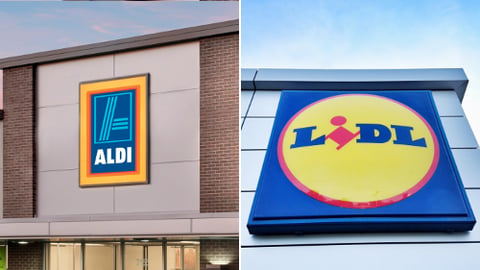Lidl Expands in U.S. Amid Distribution Center Growth
Lidl plans to open its latest U.S. food market on Wednesday, April 29, the most recent sign of how the German discount grocer’s growing supply chain power is creating more opportunity for expansion in this country.
The ongoing pandemic means that the opening of the new store, located in Cary, N.C., won't happen with the traditional ribbon-cutting ceremony, Lidl said. The new store, like so many other food retail locations, will have special shopping hours for senior citizens and customers with compromised immune systems, a limit of no more than five customers per 1,000 square feet, protective barriers at checkout lanes, and other pandemic protection measures.
Lidl operates more than 11,000 stores around the world, including about 100 in the United States, a market that the food retailer entered about three years ago. Lidl’s growth in this country comes as the food retailer builds out its supply chain network. The work focuses on a network of large distribution centers located along the Eastern Seaboard that are designed to service supply chain needs for some 1,500 stores.
Earlier in April, Lidl opened its third distribution center, this one in Perryville, Md., which is about halfway between Washington, D.C., and Philadelphia. At 705,000 square feet, the facility is the smallest of the Lidl distribution centers. In North Carolina, the food retailer has operated an 850,000-square-foot facility since the summer of 2017. Another distribution center is located in Fredricksburg, Va., and another such facility – at 925,000 square feet, it will be the largest in the Lidl network – is planned for the Atlanta area, although the company has yet to say when it will open.
Each of those centers can handle supply chain needs for up to 400 stores – even though Lidl operates only 100 stores. Each of these centers cost about $100 million to open.
As Lidl works to realize the return on its growing distribution center investment, signs are emerging that the pandemic will create lasting changes for food retailer supply chains. Recent analysis from Progressive Grocer has found that the post-pandemic world will likely include simplified grocery supply chains. Pandemic shopping habits have shifted in favor of consumers buying according to product category instead of brands, a trend that could lead, once the outbreak subsides, to more retailers rethinking their previous practice of offering a wide but expensive assortment of items. With its curated, mostly private label selection already in place, Lidl would seem poised to take full advantage of this trend.




